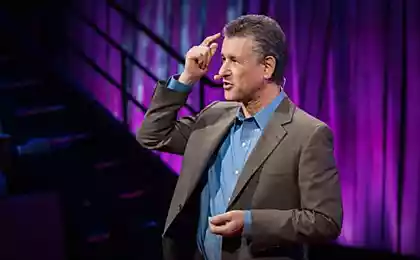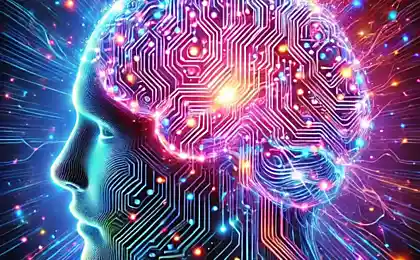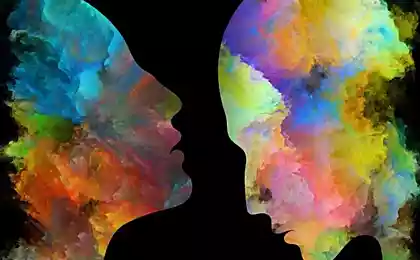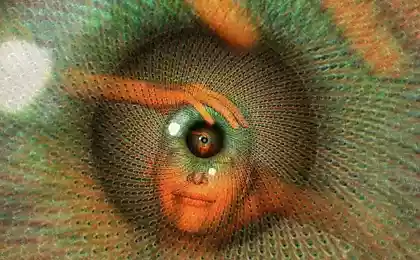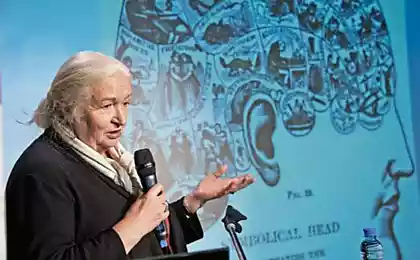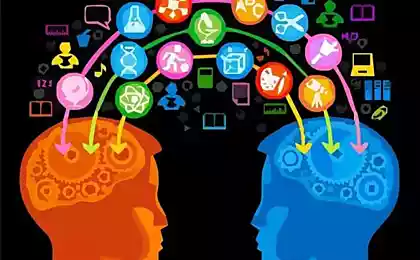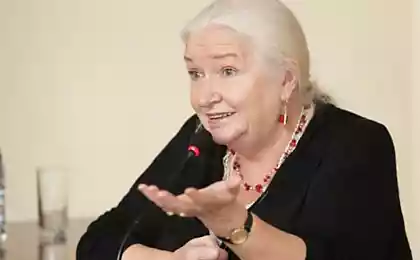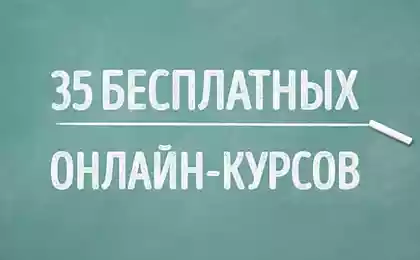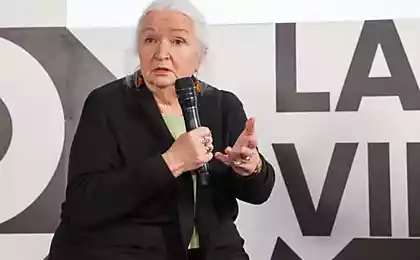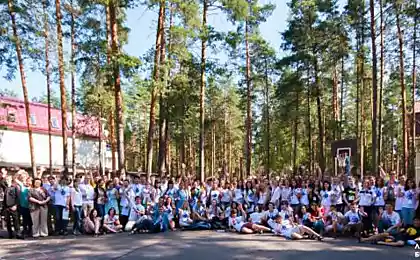937
Video lectures: 7 lectures Tatyana Chernihiv on brain and language
Today a lot is written about the human brain and scientists (cognitivist, neurophysiologists, neuropsychologists, neuroanatomy) who study this cosmic in its scope of authority.
However, so far not mentioned the Russian researchers, although their contribution is invaluable. To recall , Vladimir Mikhailovich Bekhterev, which has integrated the disparate areas of study of the nervous system (neurology, neuroanatomy, neurophysiology, neuropsychology, neurosurgery, psychiatry), laying the Foundation for the development of Russian neuroscience.
Or Alexander Romanovich Luriarecognized around the world, the founder and unquestioned leader of such powerful areas as experimental neurolinguistics.
And, of course, not to mention academician Natalya Petrovna spondylitis, and entered the world the Guild of the pioneers in the development of neurophysiology – the most powerful of brain science, the achievements which are founded all modern studies of this body.
How is remembering information, processing speech, the formation of emotions, how the brain helps us to make decisions as to fulfill its function and, most importantly, how to treat those in whom these functions are disturbed – the range of issues which are successfully solved by Russian scientists.
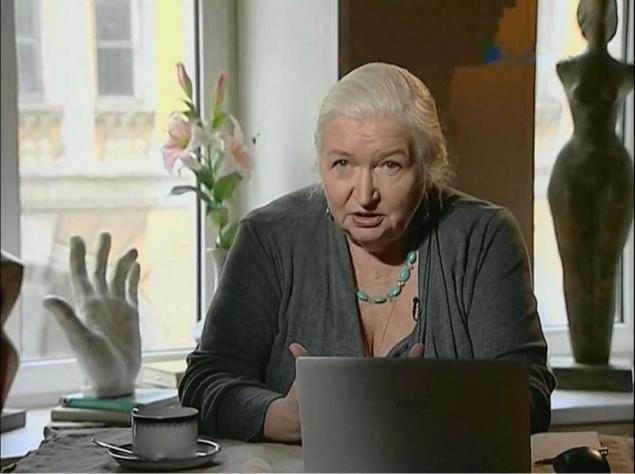
On this solid Foundation built by current research, the focus of which has shifted to a comprehensive study of the human brain at the interface of neurobiology and cognitive Sciences. And, oddly enough, in this area, again, more questions than answers.
The eternal problem of definition of consciousness ("what is consciousness?"), the correlation of language and thinking (what comes first?), investigation of the mechanisms of understanding, memory, generation, storage and transmission of information – all these aspects appeared to scientists in a new light with the development of modern technology (artificial intelligence, robotics, applied mathematics), psychology, neurophysiology, semiotics, philosophy.
We present a selection of lectures and interviews one of the brightest representatives of the Russian cognitive science Tatiana Chernigovskaya , Professor, doctor of Philology and biological Sciences, head of laboratory for cognitive studies, St. Petersburg state University and a tireless popularizer of science, one of the few, who now works in the interdisciplinary field of cognitive science — at the intersection of linguistics, psychology, artificial intelligence and neuroscience.
All of these lectures read at different times for different audiences, but they share one thing – a conversation about the brain, its abilities and mysteries. It is worth to mention that watching all the lectures in a row hardly makes sense – many of the examples again, are references to the same source, because the subject remains unchanged. But each performance is dedicated to the specific problem – and it is through the prism of this problem, the scientist talks about the brain. So it is better to choose the lecture of Tatyana Chernihiv on the most interesting topics and listen to them. Thanks for watching and welcome to the matrix.
Why is the study of the brain will occupy a Central place in the 21st century?(Why will the studies of brain take center stage in the 21st century?)
In the famous educational site Ted Talks Tatiana V. Chernigovskaya says that we have time to learn about yourself and about the brain, how this knowledge changed the picture of reality and what biological dangers await us in the new century, after all the discoveries (manipulation of memory, the creation of individual genetic portraits, etc.)
Creativity as the purpose of the brain
One of the lectures Tatiana Chernigovskaya, in which she explains the importance for the brain is creativity, how music changes the brain on a functional level and why musicians are less likely to meet old "grandfather's Alzheimer's and grandfather have Parkinson's".
And yet you know that the division of people into left hemisphere and right hemisphere has long not matter what the reason a common scale of measurement ability is not applicable to the geniuses (use, IQ) and why we should learn to remove the cognitive control, that is, to allow the brain to think what he thinks.
Ariadne, or cakes Madeline: a neural network and consciousnessAll know what consciousness is, only science knows.
At the 7th Festival of science Tatiana delves into the problem of defining consciousness, which has a history of thousands of years, explains how ironic what you remember, how it influences social evolution and why the novel Proust "In search of lost time" is a real textbook for those who study mneme.
Moreover, the Professor talks about the value of our neuroevolution and the largest problem in cognitive science concerning subjective reality.
What is intelligence, Wisdom, Genius, Intelligence
What is the criterion of mind — education, erudition, good memory? Can a person be smart and stupid at the same time? What is the difference between the mind, wisdom, intelligence? Impact of our knowledge on our fate? What distinguishes a "good" brain from the "bad"? Someone who is commanded — we are the brain or is it us? How we are free and how we are programmed? Is it possible to create an artificial brain and how dangerous computer games? On this and many other Tatiana Chernigovskaya tells in the transmission channel TVC "Master intellect."
Mental lexicon
In another public lecture Tatiana Chernihiv explains how to construct a neural network, where it contains information, what role this network plays in the language, why language ability (language competence) is our main characteristic as a species (although most people do not even use to the full their language, and communicate stamps) and what we may call the "dark matter of our brain."
Horse and quivering DOE: scientist at the intersection of science
In a lecture delivered at the Symposium "Topical issues of neurophilosophy", says Tatiana Chernigovskaya, what is the range of questions that the researchers of the XXI century in the field of neurophilosophy, including the issue of understanding the impact of science and art on the brain, myths Shrouding knowledge about the brain, switching language codes.
The speaker also drew attention to the question of what distinguishes man from the cyborg, and why the problem of existence, the mental level is a problem, which may indicate that the usual physical picture of the world is wrong.
Also interesting:
Find out if You are not facing Alzheimer's — 3 simple test
Arc — pen which improves handwriting of people with Parkinson's disease
How to teach the brain to learn
In the framework of the project "open space" Tatiana Chernigovskaya gave a lecture, which covered the anthropological changes that have occurred in the world, spoke about the challenges that confronts mankind with the increasing flow of information, and changes required education in the new situation (to abandon the "learning logarithms" and teach children "metaversum" — working with the information, control of attention and memory, etc.).published
SUBSCRIBE to OUR youtube channel that allows you to watch online, download from YouTube free video about the recovery, the rejuvenation of man. Love for others and ourselves, as the feeling of high vibrations — an important factor for improvement
Put LIKES and share with your FRIENDS! https://www.youtube.com/channel/UCXd71u0w04qcwk32c8kY2BA/videos
Subscribe - https://www.facebook.com//
P. S. And remember, only by changing their consumption — together we change the world! ©
Join us in Facebook , Vkontakte, Odnoklassniki
Source: monocler.ru/videolektoriy-7-lektsiy-tatyanyi-chernigovskoy-o-mozge-i-yazyike/
However, so far not mentioned the Russian researchers, although their contribution is invaluable. To recall , Vladimir Mikhailovich Bekhterev, which has integrated the disparate areas of study of the nervous system (neurology, neuroanatomy, neurophysiology, neuropsychology, neurosurgery, psychiatry), laying the Foundation for the development of Russian neuroscience.
Or Alexander Romanovich Luriarecognized around the world, the founder and unquestioned leader of such powerful areas as experimental neurolinguistics.
And, of course, not to mention academician Natalya Petrovna spondylitis, and entered the world the Guild of the pioneers in the development of neurophysiology – the most powerful of brain science, the achievements which are founded all modern studies of this body.
How is remembering information, processing speech, the formation of emotions, how the brain helps us to make decisions as to fulfill its function and, most importantly, how to treat those in whom these functions are disturbed – the range of issues which are successfully solved by Russian scientists.

On this solid Foundation built by current research, the focus of which has shifted to a comprehensive study of the human brain at the interface of neurobiology and cognitive Sciences. And, oddly enough, in this area, again, more questions than answers.
The eternal problem of definition of consciousness ("what is consciousness?"), the correlation of language and thinking (what comes first?), investigation of the mechanisms of understanding, memory, generation, storage and transmission of information – all these aspects appeared to scientists in a new light with the development of modern technology (artificial intelligence, robotics, applied mathematics), psychology, neurophysiology, semiotics, philosophy.
We present a selection of lectures and interviews one of the brightest representatives of the Russian cognitive science Tatiana Chernigovskaya , Professor, doctor of Philology and biological Sciences, head of laboratory for cognitive studies, St. Petersburg state University and a tireless popularizer of science, one of the few, who now works in the interdisciplinary field of cognitive science — at the intersection of linguistics, psychology, artificial intelligence and neuroscience.
All of these lectures read at different times for different audiences, but they share one thing – a conversation about the brain, its abilities and mysteries. It is worth to mention that watching all the lectures in a row hardly makes sense – many of the examples again, are references to the same source, because the subject remains unchanged. But each performance is dedicated to the specific problem – and it is through the prism of this problem, the scientist talks about the brain. So it is better to choose the lecture of Tatyana Chernihiv on the most interesting topics and listen to them. Thanks for watching and welcome to the matrix.
Why is the study of the brain will occupy a Central place in the 21st century?(Why will the studies of brain take center stage in the 21st century?)
In the famous educational site Ted Talks Tatiana V. Chernigovskaya says that we have time to learn about yourself and about the brain, how this knowledge changed the picture of reality and what biological dangers await us in the new century, after all the discoveries (manipulation of memory, the creation of individual genetic portraits, etc.)
Creativity as the purpose of the brain
One of the lectures Tatiana Chernigovskaya, in which she explains the importance for the brain is creativity, how music changes the brain on a functional level and why musicians are less likely to meet old "grandfather's Alzheimer's and grandfather have Parkinson's".
And yet you know that the division of people into left hemisphere and right hemisphere has long not matter what the reason a common scale of measurement ability is not applicable to the geniuses (use, IQ) and why we should learn to remove the cognitive control, that is, to allow the brain to think what he thinks.
Ariadne, or cakes Madeline: a neural network and consciousnessAll know what consciousness is, only science knows.
At the 7th Festival of science Tatiana delves into the problem of defining consciousness, which has a history of thousands of years, explains how ironic what you remember, how it influences social evolution and why the novel Proust "In search of lost time" is a real textbook for those who study mneme.
Moreover, the Professor talks about the value of our neuroevolution and the largest problem in cognitive science concerning subjective reality.
What is intelligence, Wisdom, Genius, Intelligence
What is the criterion of mind — education, erudition, good memory? Can a person be smart and stupid at the same time? What is the difference between the mind, wisdom, intelligence? Impact of our knowledge on our fate? What distinguishes a "good" brain from the "bad"? Someone who is commanded — we are the brain or is it us? How we are free and how we are programmed? Is it possible to create an artificial brain and how dangerous computer games? On this and many other Tatiana Chernigovskaya tells in the transmission channel TVC "Master intellect."
Mental lexicon
In another public lecture Tatiana Chernihiv explains how to construct a neural network, where it contains information, what role this network plays in the language, why language ability (language competence) is our main characteristic as a species (although most people do not even use to the full their language, and communicate stamps) and what we may call the "dark matter of our brain."
Horse and quivering DOE: scientist at the intersection of science
In a lecture delivered at the Symposium "Topical issues of neurophilosophy", says Tatiana Chernigovskaya, what is the range of questions that the researchers of the XXI century in the field of neurophilosophy, including the issue of understanding the impact of science and art on the brain, myths Shrouding knowledge about the brain, switching language codes.
The speaker also drew attention to the question of what distinguishes man from the cyborg, and why the problem of existence, the mental level is a problem, which may indicate that the usual physical picture of the world is wrong.
Also interesting:
Find out if You are not facing Alzheimer's — 3 simple test
Arc — pen which improves handwriting of people with Parkinson's disease
How to teach the brain to learn
In the framework of the project "open space" Tatiana Chernigovskaya gave a lecture, which covered the anthropological changes that have occurred in the world, spoke about the challenges that confronts mankind with the increasing flow of information, and changes required education in the new situation (to abandon the "learning logarithms" and teach children "metaversum" — working with the information, control of attention and memory, etc.).published
SUBSCRIBE to OUR youtube channel that allows you to watch online, download from YouTube free video about the recovery, the rejuvenation of man. Love for others and ourselves, as the feeling of high vibrations — an important factor for improvement
Put LIKES and share with your FRIENDS! https://www.youtube.com/channel/UCXd71u0w04qcwk32c8kY2BA/videos
Subscribe - https://www.facebook.com//
P. S. And remember, only by changing their consumption — together we change the world! ©
Join us in Facebook , Vkontakte, Odnoklassniki
Source: monocler.ru/videolektoriy-7-lektsiy-tatyanyi-chernigovskoy-o-mozge-i-yazyike/
Those who once were close and meaningful...
The power of mindfulness: 10 ways to boost their awareness





